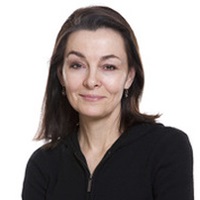7 min read
We sat down with Professor Catherine Boone, who teaches on IR221: Africa and the World: The Political Economy of Development, to discuss the complexities of development and what some see as the "bewildering diversity" of Africa, and the ways in which students in her classes will gain new tools and knowledge to understand these.
What are the major development issues Africa is facing today and how can they be addressed?
Many African countries are growing rapidly today, but the challenges are to make sure that this growth is inclusive, generates jobs and better livelihoods, and does not plunder natural resources and the environment. The challenges are huge and urgent because so much of the population of nearly all 50 countries is so young: On average, about 50% of the population is under 20! The world economy presents opportunities for Africa - in terms of markets, investment capital, and technology - but also constraints and risks. We will untangle these contradictory forces in IR221.
What role does Africa play in the global economy?
African countries are commodity exporters within the global economy - they export agricultural commodities like coffee, tea, cocoa, cotton, and fruit. They also export gold, diamonds, copper, cobalt, coltan, rare earth minerals, and of course oil. They are also exporters of capital! More wealth flows out of Africa than flows in, in the form of investment, borrowing, or foreign aid. Understanding what others have described as this "drain of wealth" from the African continent is one of most important keys to understanding the predicament and challenges that African countries, and indeed their leaders, face today. But digging in, we see that the matter is indeed much more complex than that. There are trade flows between African countries; and world-class exports of music, film, literature, and of course of global talent in the form of African professionals who can be found in "knowledge economy" sectors in countries around the globe. Africa's integration into the global economy as a trading partner of the US, the EU, and China is key in defining its world position and its place in the rapidly shifting geopolitics of the 21st century.
What is the relationship between politics and economics in African countries?
Politics is often paramount: building institutions, devising ways to produce and share wealth in inclusive ways, governing natural resource use, reaping the advantages of social diversity, making sure rulers and political leaders are accountable to the people, joining forces with neighbours to bargain good deals with rivals and partners - these are all political challenges not only for African countries, but for countries around the world. How governments in African countries have tackled their challenges, and their successes and failures, are part of dynamic processes of state-building experimentation. Politics involves struggle within countries to define values, priorities, and the meaning of a stable, shared future.
What are the main factors that shape economic policy in African countries?
The main factors shaping economic policy are the weight of the past, and hopes for the future. Past patterns of incorporation into the world economy have shaped productive sectors in African countries in ways that are hard to change overnight. World market forces are powerful and often work to keep African countries in "path dependent" types of economic activities that generate wealth and livelihoods for some, but not all. Commodity exports present these dilemmas. When it comes to hopes for the future, African countries have invested great hopes and much fortune in industrialization, education, better healthcare, transport and communications, more productive agriculture, and in extractive sectors like mining. Much capital has been borrowed on international markets to finance these ventures, and debt bondage has been a persistent risk and threat for many African countries. Facing the future means navigating both global and domestic constraints!
What is the most fascinating thing students will learn in the classroom?
The most fascinating thing students learn in IR221 is that history, geography, and social science theories about politics and economics are powerful tools for understanding the complexity of this huge, magnificent, and dynamic continent. Students learn that they can deploy these tools to make sense of what even some scholars and professionals regard as Africa's "bewildering diversity". You can't imagine where African countries will be 30 years from now without a good sense of where they have come from, and the larger global setting they are part of. Putting country experiences in historical and global context is the goal of IR221. There is so much creative energy on the continent in politics, the productive sectors like agriculture and technology, and the arts that is driving the future.
Are there opportunities for students to work in groups or on contemporary case studies you would like to highlight?
Class work will centre around interactive problem-solving to bring students face-to-face with challenges and dilemmas of colonial legacies, the costs and benefits of extractive industries, the dilemmas of needing strong governments and also needing to ensure that rules are accountable to citizens. Students will take on the role of citizens in particular countries and stakeholders in industries or sectors to explore trade-offs, conflicts of interests, and the difficult choices between short term success and long term sustainability.

